How GenY can land a job - that does not exist
By: Maria Clements
A house, a family, school loans, vacations, hobbies – none of these things can be obtained, paid for, or enjoyed without a paycheck. However, paychecks require jobs.
 With the job market currently unstable how do recent graduates know where to go for advice, where to find opportunities, and how to read the current labor trends?
With the job market currently unstable how do recent graduates know where to go for advice, where to find opportunities, and how to read the current labor trends?
Students are not alone in their desire to land a job that balances interest, financial steadiness and applies their degree. Jill Hermes, internship coordinator at Hood College’s Career Center agrees, “Getting a job is tough,” but encouragingly states “We work with students by trying to direct them to different resources. I say ‘cast a wide net;’ meaning every potential resource should be tapped into.”
Not only does she refer to the slew of technological networking sites such as LinkedIn or Indeed.com, but also places like college career centers have access to connecting students “with alum, or a friend of the college, to help discover infinity groups and uncover opportunities in a particular field of study.”
How to get where you are going
A rough draft of future plans is always helpful in order to define goals and strive for achievement, Hermes suggests.
She encourages students at Hood College to work in internships in their junior year. “At that point in time [the student] normally has enough foundational academic work to be a value to an organization in an intern role, as well as a level of maturity to complete it successfully,” she says.
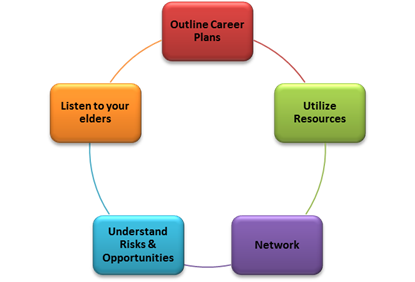 A portion of Hermes’ days are spent in various meetings and seminars where she learns how to help students find jobs and discovers new ways to provide different tools and networking opportunities. The earlier students realize the realistic expectations the workforce requires of job-seekers the more the student understands the value of building a resume and gaining experience.
A portion of Hermes’ days are spent in various meetings and seminars where she learns how to help students find jobs and discovers new ways to provide different tools and networking opportunities. The earlier students realize the realistic expectations the workforce requires of job-seekers the more the student understands the value of building a resume and gaining experience.
Stephanie Johnson, a 23-year-old graduate student, and aspiring mental health counselor in the Greater Cincinnati area says that her real-world experience has led her to discover the difficulties of finding a job in her field of interest. However, she said, those obstacles have led her down a path where she has been able to network and confirm her love of helping people.
With passion and dedication she says, “I decided on psychology the summer into sophomore year of high school after realizing that it was my calling to work with struggling adolescents for the rest of my life.”
In 2008 when Johnson entered college, she made career plans that would entail: graduate school, clinical work (preferably private-practice) with adolescent clients, study and analyze mental health assessments, treatments, and diagnoses. After further exploration she realized that a Ph.D. was not necessary for the line of work she desired, so she began to pursue a master’s degree in mental health counseling.
What is she doing now? Johnson works as a server and manager’s assistant at a restaurant while working on her master’s, and mentions that choosing a job of “happiness and comfort over resume strength” was more reasonable after undergraduate school.
So what is waiting on the other side of a diploma?
The answer to this question is uncertain, but always changing. According to study results conducted by economics professor Dr. Richard Vedder, from Ohio University, he states that “part of the risk [of going to college] is that 45 percent of those who enter college don’t graduate within six years” and additionally “students who think they can major in social work then go get a fancy job and then live in an upper middle-class suburb are perhaps living a life that’s devoid of much reality these days.”
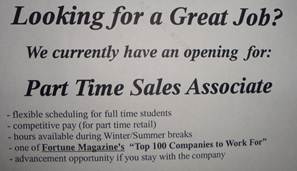
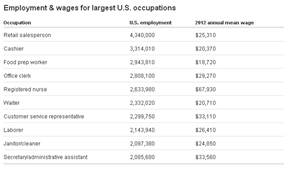
Johnson speculates she does not have a job in her field because of the lack of opportunities. “The field is growing rapidly,” she states “but the problem is that so many people are recent graduate-level graduates begging for graduate-level positions, yet [they] are settling for the entry level [jobs] in the meantime.”
After applying for “several bachelors’-level positions in human services fields” she “realized quickly that many of [those jobs] were masked social work positions that would not boost a psychology resume.”
If the jobs aren’t there what options does GenY have?
The most important thing new graduates and college students can do, is actively prepare their resume and heed the advice councilors and professionals take the time to offer.
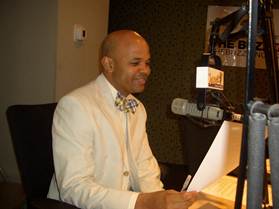 Small business owner Al Riddick explains “In my line of business, I look for consultants who are passionate about their particular service.” After working in pharmaceutical sales Riddick found his passion for helping people “understand how they relate to money and then providing techniques and strategies to help them use more logic and less emotion when making financial decisions.” His dedication led him to start his own company, Game Time Budgeting, and with the help of exemplary contractors, he has found success in this struggling economy.
Small business owner Al Riddick explains “In my line of business, I look for consultants who are passionate about their particular service.” After working in pharmaceutical sales Riddick found his passion for helping people “understand how they relate to money and then providing techniques and strategies to help them use more logic and less emotion when making financial decisions.” His dedication led him to start his own company, Game Time Budgeting, and with the help of exemplary contractors, he has found success in this struggling economy.
Additionally, Riddick examples of work and/or referrals while searching for a specific skill level, integrity, honesty, timeliness, and professionalism. Without taking the time to prepare a diverse resume and/or a relevant portfolio, students are asking employers to rely on promises alone, rather than proof of talent or skillsets.
Beat stereo types: “Be a leader, not a follower.”
Reports summarize that GenY has been named “Generation Me,” that current college students are more narcissistic than ever before.
Based on research conducted by Psychologist Jean Twenge of San Diego State University, the chart below shows the increased level of confidence students have acquired since 1965.
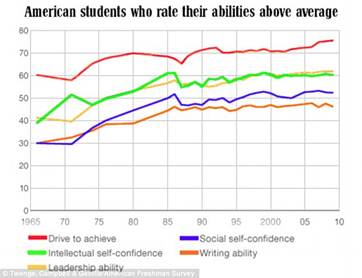
The entire world has access to this chart and the evidence surrounding this research. Not only that but the evidence of ability, comprehension, and effort new–hires demonstrate in the workplace is apparent to the older peers and bosses.
While the older generation acknowledges that GenY comes into the workplace with a team-player attitude and technology skill sets, according Jeffrey Domsic, a senior scientist for Proctor and Gamble (P&G). But he says early in new graduates’ careers “there is a trend towards less self-motivation and initiative taking” however “there is also a trend towards being more open to suggestions, and more of a desire for self-improvement,” he says.
A balance of the two factors is necessary to career success. Domsic is proof of this balance as he invented a method in Global Microbiology that “helps drive the supply side of P&G’s FHC business” and is a member of and elite team that “recently traveled to a manufacturing planning in Amiens, France to train and qualify staff to conduct testing of my new method.”
Domsic has accomplished this status and success is “because of my track record on the job and my skillsets developed during my academic training.” He speculates in regards to future employees that the “better grades in school equate to better initial performance on the job, however, that trend tends to [dissipate] as work experience is gained.” Thus a valuable piece of information to remember when setting career goals throughout life is that “those who have the most desire to learn will rise to the top,” says Domsic.
Adjusting attitudes toward mindful manners
Johnson iterates that “[GenY] suffers from a sense of entitlement and money-hunger that blinds us from being truly happy.” She additionally states that “your career should definitely provide for you and your family, but if it doesn’t provide for your soul, it will affect your life outside of work.”
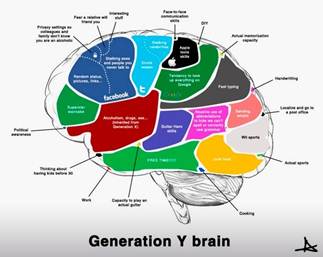 Ronita Marple, senior scientist for P&G who place a key role in the hiring process, advises one way of obtaining success in the workplace is to be aware of generation gaps. “I have seen so many issues [arise] because people don’t know how to communicate with each other.” Additionally she stresses that “the corporate world moves FAST and priorities change quickly so make sure you are in touch.”
Ronita Marple, senior scientist for P&G who place a key role in the hiring process, advises one way of obtaining success in the workplace is to be aware of generation gaps. “I have seen so many issues [arise] because people don’t know how to communicate with each other.” Additionally she stresses that “the corporate world moves FAST and priorities change quickly so make sure you are in touch.”
By understanding all aspects of the interview and hiring processes, job-seekers will be able to find more success finding a job. Marple stresses that, as far as a resume is concerned, “I look for demonstrated proficiency in the field of interest – in my case I look for a degree and what analytical chemistry techniques with which they have experience – and how well it matches the job description.”
Not only does Marple look for accomplishments in the field of study, but also a list of extra-curricular activities, and leadership potential – both implying the candidate for the job has a well-rounded background and has experience contributing ideas and thoughts during group activities and settings.
Doing your best does not necessarily pay the bills – but it could lead to future employment
Even when students work hard to network and follow all the advice provided by advisers, employers and online resources, the bartending gig, secretary’s duties or commission-based sales job a graduate initially works, does not imply the dream job is not attainable.
Hermes says “You don’t have to have it all mapped out before you take the first step: go to the interview, accept the job,” even if it is not your dream job she says and find your passions along the way.”
And Johnson can attest that working hard in the current position, even though it does not apply her degree she has made connection along the way with a woman who is focused “on providing me my internship, writing as many recommendation letters as it takes, and helping me to get a job once I take the test and am licensed to practice.” Even though a contact in Johnson’s network is willing to help her find a job, Johnson says she “won't be lazy about it, though.”
Just because the connections and the network provides lead-way is not an excuse to lose sight of the end goal: a job which balances financial stability, happiness and makes those college years’ worth it.